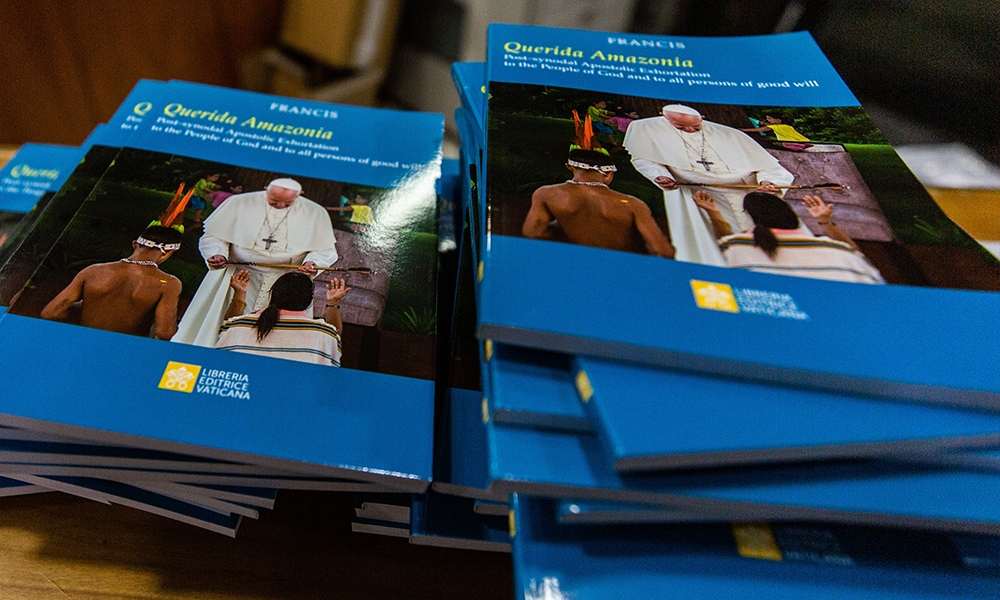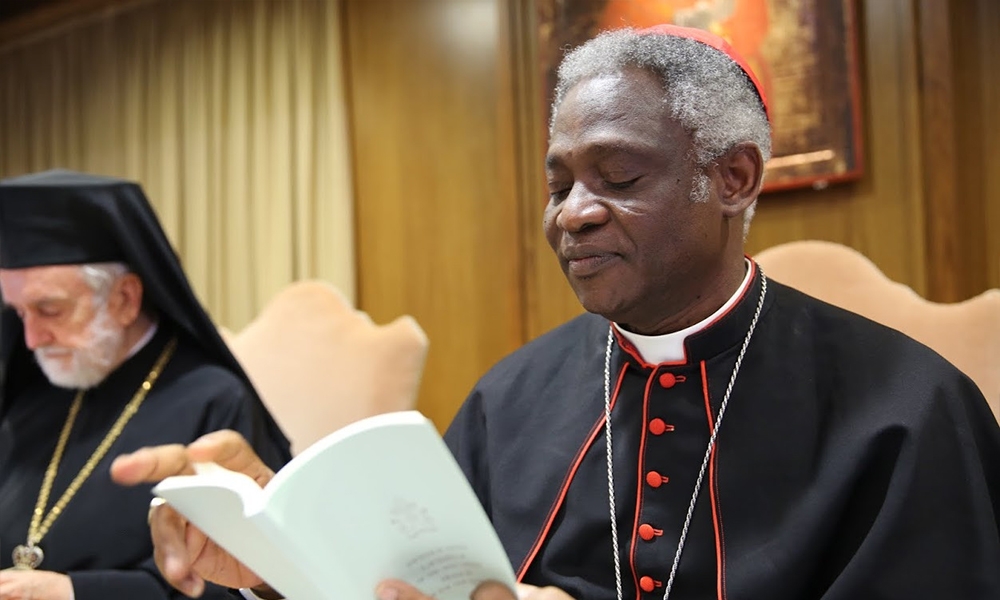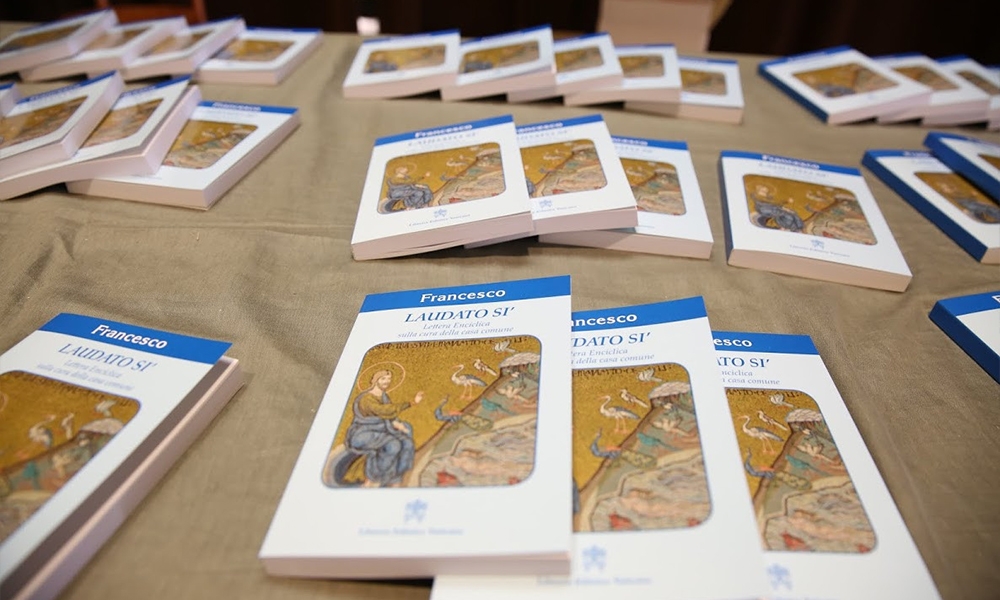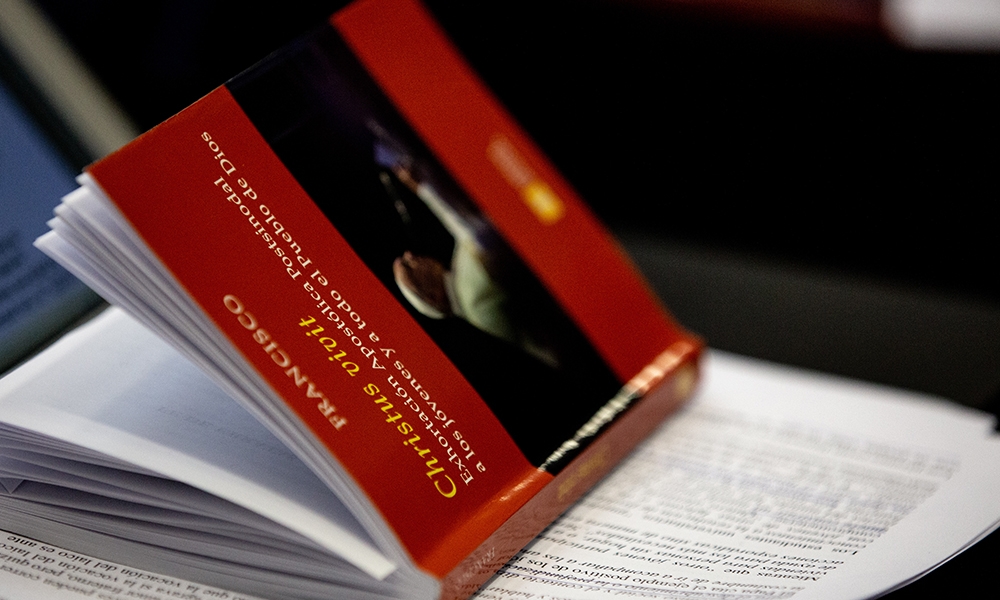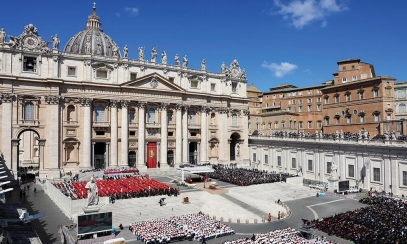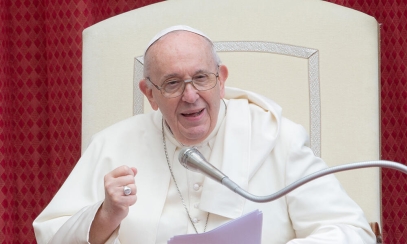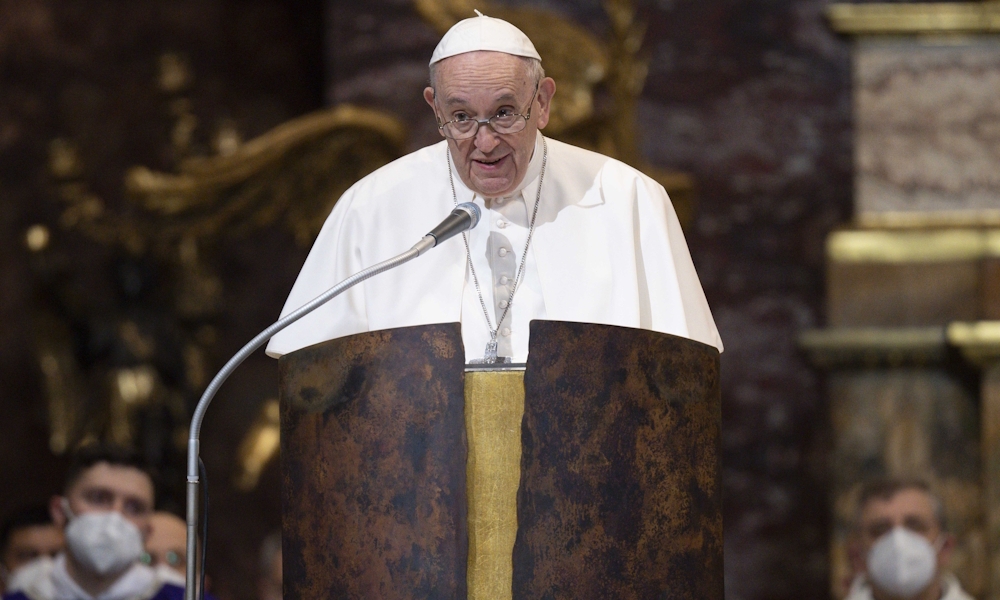
Writings and teachings
What is an Encyclical?
An encyclical letter is a high-level teaching document that expresses the pope’s thoughts on matters of faith and morals. Encyclicals may be to the entire Church, a particular Church or people, or to all people of goodwill. Encyclicals do not constitute ex cathedra (“from the chair”) pronouncements, meaning, they do not have infallible authority. However, they are important in that the pope is fulfilling his role as pastor and teacher.
What is an Apostolic Exhortation?
An Apostolic Exhortation is typically issued in response to a synod of bishops in which a pope encourages the Church to undertake a particular activity. Exhortations do not define Church doctrine and are considered less authoritative than papal encyclicals, but they are more authoritative than other papal issuances such as audiences and homilies.
Encyclicals
Lumen Fidei | 2013
In “Light of Faith,” Pope Francis builds on a first draft written by his predecessor, Pope Benedict XVI, on the topic of Christian faith in the third millennium. Pope Benedict had written two previous encyclicals on the other two theological virtues, charity and hope.
Laudato si’ | 2015
In Laudato sí’ (on care for our common home), Pope Francis holds up St. Francis of Assisi as “the example par excellence of care for the vulnerable and of an integral ecology lived out joyfully and authentically.” He says that St. Francis demonstrates “how inseparable the bond is between concern for nature, justice for the poor, commitment to society, and interior peace.” (10)
The apostolic exhortation Laudate deum (to all people of good will on the climate crisis), published in 2023, is a follow-up to Laudato sí’.
Fratelli Tutti | 2020
In his third encyclical, Fratelli Tutti (on fraternity and social friendship), Pope Francis focuses on many of the issues that serve to fracture our relationships with one another and with society. The eight-chapter papal document studies the effects of our social ills and proposes a pathway to human fraternity and social friendship.
Dilexit nos | 2024
Pope Francis’ fourth encyclical, Dilexit nos, discusses “the human and divine love of the heart of Jesus Christ.” Echoing several of his predecessors, Pope Francis recommends devotion to the Sacred Heart as a means of contemplating the love of God for humanity. Reparation, reconciliation, missionary activity and fraternity are some of the fruits of this devotion.
Apostolic Exhortations
Evangelii Gaudium | 2013
Pope Francis’ first apostolic exhortation “on the proclamation of the Gospel in today’s world” urges the Church to embrace her mission of evangelization to share the Good News of Jesus Christ.
Amoris laetitia | 2016
Pope Francis' papacy illuminated the importance of family within the sacrament of marriage, and this exhortation “on love in the family” addresses pastoral care for the family and the challenges modern families face.
Gaudete et exsultate | 2018
In his exhortation “on the call to holiness,” Pope Francis reminds the faithful that holiness is a universal call and offers guidance for pursuing this call in today’s world.
Christus Vivit | 2019
This “post-synodal exhortation to young people and to the entire people of God” was written in response to the 15th Ordinary General Assembly of the Synod of Bishops. Pope Francis explores the unique challenges faced by today’s young people and offers timeless wisdom to help them pursue Christ.
Querida Amazonia | 2020
Pope Francis addressed the Synod of Bishops for the Pan-Amazon region in 2019. In 2020 he issued this post-synodal exhortation which explores care for the environment, social concerns for the poor and the desire to “develop a Church with an Amazonian face” through new paths of evangelization. (61)
C’est la confiance | 2023
In his apostolic exhortation “on confidence in the merciful love of God,” Pope Francis proposes St. Thérèse’s “little way” of trust and love as a “synthesis” of Christian holiness. By this “way of spiritual childhood,” we place our confidence in God’s love for us as we strive for sanctity.
“Thérèse experienced a deep and boundless trust in God’s infinite mercy: 'confidence that must lead us to Love'.”
-C'est la confiance, 27

